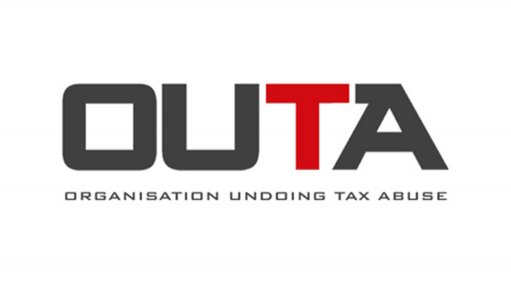
The Organisation Undoing Tax Abuse (Outa) noted on Friday that although the current version of the General Intelligence Laws Amendment Bill (GILAB) is a major improvement from previous ones and a step in the right direction, there are still some concerns for civil society organisations.
Last month, Parliament’s National Assembly adopted the new GILAB.
Outa regards the third iteration of the Bill as an improvement on the first two versions, and views the “omission of the draconian provisions” as a victory for civil society.
The organisation raised concerns with the failure by GILAB to give sufficient powers to the Auditor-General, the Inspector-General of Intelligence, and Parliament’s Joint Standing Committee on Intelligence to oversee the Secret Services expenditure of R4.865-billion in 2024/25.
The organisation highlighted that although the Inspector-General of Intelligence could appoint their own staff and determine the organisational structure, they still could not make legally binding decisions or recommendations.
“…which means that their investigations into malfeasance are unlikely to lead to any form of accountability,” explained Outa.
GILAB will now proceed to the National Council of Provinces (NCOP) for further consideration.
“…although it is noted that, since it is a Section 75 Bill (on ordinary Bill not affecting provinces), the NCOP need not concur with the Bill for it to be passed,” Outa pointed out.
The organisation said, more than ever, South Africa needed an active civil society that could hold government to account, adding that any measures by the State to interfere with or hamper civil activism was a recipe for authoritarian conduct that would stifle the organisation’s work.
Outa noted some of the improvements on the new GILAB, highlighting the removal of the security vetting provision in some instances.
It also noted that the previous Bill had a broad definition of "person or institution of national security interest" which granted excessive authority to State intelligence agencies to conduct mandatory security vetting.
It is concerned about this lack of clarity regarding the criteria for identification and the potential for abuse of power.
The previous versions of GILAB propose to expand the mass interception surveillance powers of State security agencies through the National Communications Centre (NCC) without adequate safeguards for privacy and freedom of expression.
Outa noted that the oversight mechanisms outlined fell short of constitutional standards and risked granting unchecked surveillance powers to the government.
It added that the current version of GILAB required intelligence services to seek approval from a judge to conduct mass interception and that judge must be appointed by the President in consultation with the Chief Justice.
Outa said that the GILAB now included more stringent oversight over data collected by the NCC and clearly recognised the safeguards of the Protection of Personal Information Act.
“Although some of the problematic broad definitions, such as “national security”, still remain in GILAB, it is commendable that the ill-defined term “potential opportunity”, which was contained in the older versions of GILAB, has been removed,” Outa said.